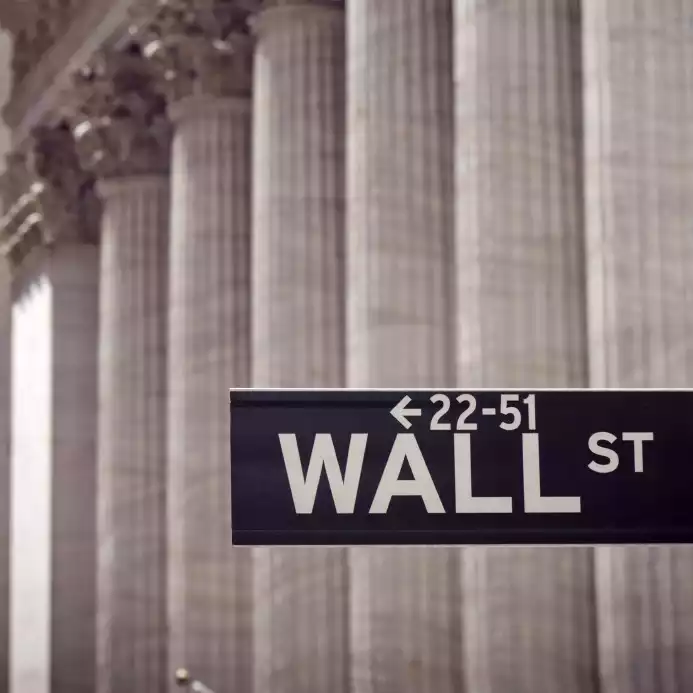In recent years, woke investing has gained momentum as investors increasingly prioritize social and environmental impact alongside financial returns. According to a report by the Global Impact Investing Network (GIIN), the global impact investing market reached $715 billion in assets under management in 2020. This significant growth reflects a shift in investor preferences towards sustainability and ethical considerations. For example, BlackRock, one of the world's largest asset managers, announced plans to increase its sustainable assets to $1 trillion by 2030. Real-life examples of woke investing include companies like Patagonia, which integrates environmental sustainability into its business model, and investment firms like Calvert Impact Capital and Clean Energy Ventures, which focus on financing projects that address social and environmental challenges.
What is Woke Investing?
Woke investing, also known as ESG investing, has gained traction in recent years, reflecting a shift in the investment landscape towards social consciousness and activism. At its core, woke investing involves aligning one's investment portfolio with their personal values and societal concerns. This means considering factors beyond financial returns, such as environmental sustainability, social justice, diversity, and corporate governance practices. Woke investors seek to support companies that demonstrate a commitment to these principles. They avoid those that engage in practices deemed harmful or unethical.
One key aspect of woke investing is environmental, social, and governance (ESG) criteria. The framework assesses companies on carbon emissions, labor practices, and board diversity. It also evaluates community engagement. By integrating ESG considerations into investment decisions, woke investors aim to promote positive change and hold corporations accountable for their impact on society and the planet. This approach reflects a growing awareness of the interconnectedness between business practices and broader societal issues, including the utilization of ESG funds for investment purposes.
Furthermore, woke investing often goes hand in hand with shareholder activism and engagement. Rather than simply divesting from companies with questionable practices, woke investors may actively advocate for change from within by leveraging their shareholder rights to push for reforms or policy changes. This proactive approach seeks to drive long-term sustainable growth while fostering a more equitable and responsible corporate culture.
Woke Investing Vs Anti-Woke Investing
Woke investing, which focuses on both financial returns and social impact, differs significantly from what some term "anti-woke" investing. The latter prioritizes profit maximization above all else and often overlooks social or environmental considerations when making investment choices.
For anti-woke investors, the bottom line is financial gain, and they may not take into account the broader impact of their investments on society or the environment. This approach is more traditional and places less emphasis on ethical or socially responsible investing practices.
In contrast, woke investing takes a more holistic view, considering not only financial outcomes but also the social and environmental implications of investment decisions. Woke investors seek opportunities that align with their values and contribute positively to issues such as sustainability, diversity, equity, and inclusion. They believe that investing in companies that prioritize social responsibility can lead to long-term financial success while also making a positive impact on the world.
How Woke Investing Works
a) Screening Criteria:
Woke investors often use a set of screening criteria or filters to identify companies that align with their values and social impact goals. These criteria go beyond traditional financial metrics and may include factors such as:
- Environmental Impact: Assessing how a company manages its environmental footprint, including its carbon emissions, waste management practices, and efforts towards sustainability.
- Labor Practices: Evaluating how a company treats its employees, including fair wages, workplace diversity and inclusion, employee benefits, and labor rights protections.
- Diversity in Leadership: Considering the diversity of a company's leadership team and board of directors in terms of gender, ethnicity, race, and other dimensions of diversity.
- Community Engagement: Looking at how a company engages with and contributes to the communities in which it operates, including philanthropic initiatives, social programs, and community development efforts.
- Ethical Business Practices: Assessing the ethical conduct of a company in its business operations, supply chain management, product sourcing, and adherence to ethical standards and regulations.
b) Engagement and Advocacy:
Woke investors not only invest in companies aligned with their values but also actively engage with these companies to drive positive change. This engagement can take various forms, including:
- Dialogue with Company Management: Engaging in constructive dialogue with company executives and management to advocate for sustainable practices, diversity, equity, and inclusion initiatives, and ethical business conduct.
- Shareholder Resolutions: Submitting shareholder resolutions that address specific environmental, social, or governance issues and calling for corporate action or policy changes.
- Advocacy for Policies: Advocating for policies at the corporate, industry, or regulatory level that promote sustainability, social responsibility, and ethical business practices.
c) Impact Measurement:
Woke investors are committed to measuring and quantifying the social and environmental impact of their investments. They use a range of metrics and tools, including:
- Environmental Metrics: Tracking environmental indicators such as greenhouse gas emissions, water usage, renewable energy adoption, and waste reduction efforts.
- Social Metrics: Assessing social impact factors such as employee satisfaction, diversity metrics, community engagement initiatives, and social welfare contributions.
- Governance Metrics: Evaluating governance practices related to board independence, executive compensation, shareholder rights, transparency, and accountability.
- ESG Scores: Utilizing Environmental, Social, and Governance (ESG) scores provided by third-party rating agencies or creating customized ESG frameworks to evaluate companies' overall performance in these areas.
By employing these comprehensive approaches to screening, engagement, and impact measurement, woke investors aim to generate both financial returns and positive societal outcomes through their investment portfolios.
Examples of Famous Woke Investors
Larry Fink (BlackRock):
Larry Fink, CEO of BlackRock, stands out as a prominent advocate for sustainable investing, emphasizing the critical role of Environmental, Social, and Governance (ESG) factors in investment decisions. Under his leadership, BlackRock has become one of the world's largest asset management companies, managing a staggering $10 trillion in assets. Notably, a substantial portion of BlackRock's assets is dedicated to sustainable investments, demonstrating Fink's commitment to driving positive change through finance.
Catherine Wood (ARK Invest):
Catherine Wood, the visionary founder and CEO of ARK Invest, has gained recognition for her unwavering focus on disruptive technologies that foster positive social and environmental impacts. ARK Invest's flagship ETFs, including the ARK Innovation ETF (ARKK), have witnessed remarkable growth attributed to investments in companies aligned with ESG principles. Wood's strategic approach has propelled ARK Invest as a leader in sustainable and forward-thinking investment strategies.
Impact Investing Funds:
Impact Investing Funds, such as Impact America Fund and the Rise Fund, exemplify organizations dedicated to impactful investing. These funds actively seek out companies with strong social impact missions, showcasing a tangible commitment to diversity and social responsibility. For instance, the Impact America Fund's investment in Partake Foods, a Black-owned business specializing in allergy-friendly snacks, underscores the fund's dedication to promoting diversity and inclusion while making socially conscious investments.
Patagonia:
Patagonia, renowned for its outdoor gear, also champions environmental sustainability. Founder Yvon Chouinard has been a vocal advocate for environmental causes, and Patagonia's commitment to sustainability extends beyond its products, making it a standout example of a socially conscious corporation driving positive change.
Warren Buffett:
Warren Buffett, often referred to as the "Oracle of Omaha," integrates ESG factors into his investment decisions, reflecting a growing trend among prominent investors. Berkshire Hathaway, under Buffett's leadership, has made significant investments in renewable energy companies like BYD, underscoring the shift toward sustainable investing practices within traditional investment circles.
Michael Bloomberg
Michael Bloomberg, a billionaire entrepreneur, is known for advocating climate change initiatives. He's also recognized for promoting sustainable investments. Bloomberg's commitment to environmental sustainability has made him a prominent figure in the world of woke investing. Last year, Bloomberg made significant investments totaling over $500 million in solar and wind energy projects in New York, supporting initiatives that combat climate change and promote environmental sustainability. His efforts have contributed to the growth of renewable energy infrastructure, reducing carbon emissions and creating jobs in local communities. Through his investments, Bloomberg demonstrates the potential for private sector leaders to drive positive change and advance environmental goals.
What are the Pros and Cons of Social Trading vs Traditional Trading?
The Pros of Social Trading vs Traditional Trading:
- Potential for Positive Social Impact: Social trading offers the potential to invest in companies that align with your values and contribute positively to societal well-being. By supporting businesses that prioritize environmental sustainability, social equity, and ethical practices, investors can have a direct impact on driving positive change.
- Alignment with Personal Values: Social trading allows investors to feel good about where their money is invested. It's a way to support causes and initiatives that resonate with personal beliefs and ethics. This alignment can create a sense of fulfillment and purpose beyond financial gains.
- Long-Term Sustainability: Investing in companies that prioritize environmental, social, and governance (ESG) factors can lead to long-term sustainability. By considering these factors, investors contribute to building a more resilient and responsible economy that addresses global challenges such as climate change, social inequality, and corporate governance issues.
- Opportunities for Innovation and Growth: Socially responsible investing often involves investing in innovative solutions and technologies that address pressing global challenges. This focus on innovation not only drives positive societal impact but also creates opportunities for financial growth as these companies thrive in the market.
The Cons of Social Trading vs Traditional Trading:
- Potential Lower Financial Returns: Critics argue that prioritizing social impact may lead to lower financial returns. This contrasts with profit-driven investments. While social trading aims to create a positive societal impact, investors should be aware of the potential trade-offs in financial gains.
- Limited Investment Options: Socially responsible investing may limit investment options based on strict ESG criteria. This limitation can result in a narrower selection of investment opportunities, potentially impacting portfolio diversification and risk management strategies.
- Subjectivity in ESG Criteria: Evaluating companies based on environmental, social, and governance factors can be subjective and challenging to standardize. Different investors may have varying interpretations of ESG criteria. Leading to inconsistencies in investment decisions and outcomes.
- Challenges in Measurement and Reporting: Assessing the actual impact of investments on social and environmental outcomes can be complex. It requires robust measurement frameworks and reliable data sources. Which may not always be readily available. This can pose challenges in accurately gauging the effectiveness of social trading strategies.
Is Woke Investing Really Worth It?
Woke investing isn't just a feel-good move; it's also a savvy financial strategy. In 2020, sustainable funds experienced an unprecedented surge in popularity, with investments skyrocketing to over $51 billion, according to Morningstar. That's a staggering increase, signaling a seismic shift in the investment landscape.
What's driving this trend? Well, more investors are realizing that supporting companies with strong environmental, social, and governance (ESG) practices isn't just morally sound - it's financially rewarding too. Research by Harvard Business Review indicates that companies focusing on sustainability often outshine their counterparts in the long run. So, by putting your money into socially responsible investments, you're not just doing good; you're also potentially boosting your bottom line.
A report by Morgan Stanley found that sustainable funds consistently delivered stronger returns and lower volatility compared to traditional funds. This means that not only are you making a positive impact on the world, but you're also setting yourself up for better financial outcomes.
But it's not just about the numbers. Woke investing allows you to align your investment portfolio with your values. Whether you're passionate about climate change, social justice, or ethical business practices, there's a plethora of opportunities to invest in companies that share your beliefs.
So, is woke investing worth it? Absolutely. It's a win-win situation where you can make a difference in the world while also potentially growing your wealth. And with the increasing popularity of sustainable investing, there's never been a better time to jump on board the woke investing train.
Interest rates get lower, and pension funds, on the other hand, are facing growing pressure to invest sustainably, with many committing to achieving net-zero emissions in their portfolios. This further fuels the momentum behind woke investing, as more institutional investors recognize the importance of aligning their investments with environmental and social goals.
Woke Backlash
In the ongoing debate over woke capitalism, voices from both sides clash like waves against the shore. The term "woke" has become a battleground, with critics arguing it's gone too far. While supporters champion its push for social change.
One prominent figure in this clash is Florida's Governor, Ron DeSantis. He's been vocal about his opposition to what he sees as excessive wokeness. Even signing legislation that fines social media companies for banning political candidates. DeSantis isn't alone; many conservative leaders share his concerns.
But what exactly is woke capitalism? It's when companies take a stand on social and political issues, sometimes to the dismay of certain groups. For example, when companies like Nike support athletes speaking out against racial injustice, it can spark controversy.
In the American political arena, the debate over woke capitalism often falls along party lines. President Biden and many Democrats support corporate social responsibility, viewing it as a way to address societal issues. On the other hand, former President Trump and many Republicans criticize what they see as "virtue signaling" by big businesses.
The Republican Party, also known as the GOP (Grand Old Party), has been particularly vocal in its opposition to woke capitalism. Leaders within the House GOP, such as Governor DeSantis, have introduced legislation. Senators from red states like Texas aim to curb what they perceive as corporate overreach.
Recently, the issue of woke capitalism has spilled over into legislative action. Some Republican-led states, including Florida and Texas, have introduced bills aimed at curbing what they call "anti-ESG" (Environmental, Social, and Governance) practices. These bills seek to prevent companies from prioritizing social and political causes over their fiduciary duty to shareholders.
In Congress, the debate rages on. Conservative lawmakers argue that companies should focus on maximizing profits rather than engaging in social activism. They believe that woke capitalism is not only divisive but also detrimental to the economy.
However, proponents of woke capitalism argue that companies have a responsibility to consider more than just profits. They believe that corporations should use their influence to advocate for positive social change.
Amidst this clash of ideologies, one thing remains clear: the issue of woke capitalism isn't going away anytime soon. A recent survey by Edelman found that 68% of people are more likely to buy from, stay loyal to, speak positively about, and defend a brand if they trust it completely in terms of its products, customer service, and social impact. This contrasts with only 47% who base their trust solely on the product itself.
As red states push back against what they see as overreach by corporations, taxpayers and consumers alike are caught in the crossfire. And as the battle continues, Wall Street watches closely. Knowing that the outcome could have far-reaching implications for the future of American business.
Fossil fuel and green initiatives also play a role in this debate. Companies that prioritize environmental sustainability and renewable energy are often lauded by supporters of woke capitalism. Conversely, industries heavily reliant on fossil fuels may face scrutiny for their environmental impact. This adds another layer of complexity to the discussion. As stakeholders grapple with balancing profitability and social responsibility in an increasingly polarized landscape.
Woke Investing Tips
When diving into woke investing, there are a few key tips to keep in mind to navigate this exciting yet nuanced investment landscape effectively:
- Define Your Values and Goals: Take a moment to reflect on what truly matters to you. Consider your social, environmental, and financial objectives. Do you prioritize investing in companies that promote sustainability, diversity, or ethical business practices? Clarifying your values and goals will guide your investment decisions.
- Conduct Thorough Research: Knowledge is power in the world of woke investing. Before investing your hard-earned money, delve into companies' Environmental, Social, and Governance (ESG) practices. Look beyond financial performance to understand their commitment to sustainability, social impact, and long-term viability. Tools like ESG ratings and sustainability reports can provide valuable insights.
- Diversify Your Portfolio: As the saying goes, don't put all your eggs in one basket. Investing wisely involves diversifying your portfolio. This means spreading out your investments across various asset classes, industries, and geographic locations. By doing so, you can reduce the risk associated with any single investment and increase your chances of long-term success. This approach helps mitigate potential losses from any single investment and promotes a balanced investment strategy.
- Stay Informed: The world of woke investing is dynamic and constantly evolving. Keep yourself updated with the latest industry trends, regulatory shifts, and new opportunities that arise. Follow reputable sources, attend webinars and seminars, and engage with like-minded investors to deepen your understanding and make informed decisions.
Conclusion
Woke investing has surged in popularity, with sustainable investment funds reaching record levels of assets under management. In 2020, the options for sustainable funds that U.S. investors could choose from increased to nearly 400. This marked a 30% growth from 2019 and almost quadrupled compared to ten years ago, as reported by Morningstar. This demonstrates a significant shift in investor preferences towards companies that prioritize environmental, social, and governance (ESG) factors.
However, the landscape of woke investing is not without its challenges. While socially responsible investments can offer competitive returns, they may also face volatility and market fluctuations. For instance, during periods of economic uncertainty, ESG-focused funds may experience greater sensitivity to market swings. Investors must carefully weigh the potential benefits of woke investing. They should also consider the inherent risks and volatility associated with this approach.









